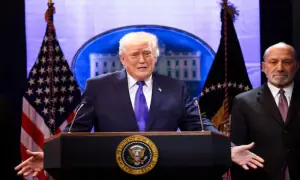US Supreme Court upholds controversial voting restrictions
3 min readWASHINGTON: The US Supreme Court on Thursday upheld controversial Arizona laws that restrict how ballots can be cast, a decision that could have lasting impact on the voting rights of minorities.
President Joe Biden said he was "deeply disappointed" with the ruling, which raises questions about the potential success of future challenges against such laws at a time when Republican state legislatures are moving to enact restrictions that critics warn are intended to suppress the vote.
"The attack we are seeing today makes clearer than ever that additional laws are needed to safeguard that beating heart of our democracy," Biden said.
The decision was 6-3, with the court's three liberal justices in dissent.
The case, Brnovich vs Democratic National Committee, involves two Republican-backed electoral laws that were seen as a key test of the historic 1965 Voting Rights Act, which sought in part to prevent discrimination against Black voters.
One requires citizens who vote on election day to cast ballots in the precinct in which they live, while another makes it a felony for advocates like union representatives to collect and deposit voters' ballots, a process critics call ballot harvesting.
Democrats filed suit, arguing that such provisions were enacted with discriminatory intent and violated Section 2 of the Voting Rights Act.
A federal appeals court ruled last year that the laws would adversely impact African Americans, Hispanics and Native Americans, who for socioeconomic reasons are less able to travel to polling stations.
Supporters of the state laws argued in the Supreme Court, where conservative-leaning justices have a 6-3 majority, that the laws are necessary to prevent voter fraud.
Justice Samuel Alito wrote in the majority opinion that every American faces some voting burden and that "mere inconvenience" is not enough to demonstrate a violation of Section 2.
The impact of the laws, he argued, was negligible.
"The mere fact there is some disparity in impact does not necessarily mean that a system is not equally open or that it does not give everyone an equal opportunity to vote," Alito wrote.
"The size of any disparity matters."
Justice Elena Kagan wrote in her dissent that the decision "undermines" the Voting Rights Act and its twin premises of democracy and racial equality.
"What is tragic here is that the Court has (yet again) rewritten -- in order to weaken -- a statute that stands as a monument to America's greatness, and protects against its basest impulses," Kagan wrote.
**- 'Severe damage' -**
The decision is the second blow against the Voting Rights Act in under a decade.
In 2013 the Supreme Court struck down a part of the act which had required states with a history of voter discrimination to first receive a green light from the federal authorities before changing any voting rules.
Biden led a chorus of criticism from Democratic lawmakers, left-leaning political action committees, and the American Civil Liberties Union.
"In a span of just eight years, the Court has now done severe damage to two of the most important provisions of the Voting Rights Act of 1965 -- a law that took years of struggle and strife to secure," the president said.
"We should be fully enforcing voting rights laws, not weakening them."
The outcome of the latest case is seen as particularly important for the Democratic Party, which receives more support from minority voters than Republicans do.
African Americans, for example, voted overwhelmingly for Democrat Biden in the November election, which former president Donald Trump falsely claimed was marred by voter fraud.
Three Trump nominees were confirmed to the nine-member high bench, and they sided with the voting restrictions.
The Republican National Committee welcomed the Brnovich decision, calling it "a resounding victory for election integrity and the rule of law."
Last week Senate Republicans blocked a sweeping voting rights bill aimed at expanding ballot access for all Americans.
For the latest news, follow us on Twitter @Aaj_Urdu. We are also on Facebook, Instagram and YouTube.
























Comments are closed on this story.